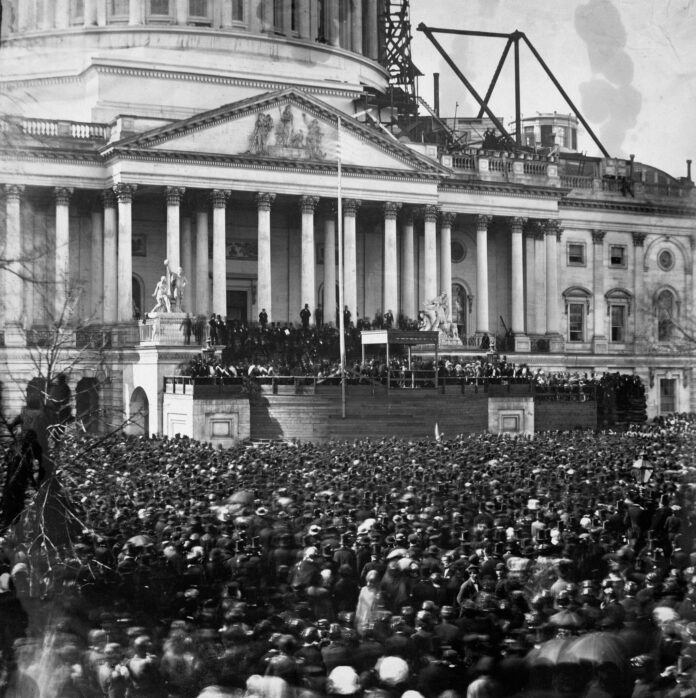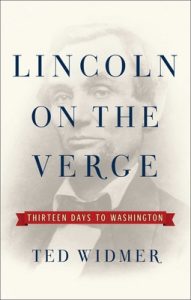
LINCOLN ON THE VERGE: Thirteen Days to Washington | Ted Widmer | BUY BOOK
Opinion by Ted Widmer | The New York Times | October 30, 2020
There are many parallels between 1860 and 2020. Let’s hope there aren’t too many.
Long before Covid-19, Alexis de Tocqueville described a presidential election as a form of sickness in which the body politic became dangerously “feverish” before returning to normal. Emotions ran too hot, and the fragile forms of consensus that were essential for democracy — what Tocqueville called our “habits of the heart” — evaporated, as party hacks exhausted themselves in vitriolic attacks on one another and the system.
That was true in 1860, as the most toxic campaign in American history delivered Abraham Lincoln — by most accounts, our greatest president. But before he could save the Union, Lincoln had to survive his election and a difficult transition, bitterly resisted by an entrenched political establishment that had no intention of giving up power… more
ABOUT THE BOOK

Watch video of Ted Widmer talking about his book.
“Lincoln on the Verge is quite simply as good as it gets in the art of writing biography.” — Washington Independent Review of Books
As a divided nation plunges into the deepest crisis in its history, Abraham Lincoln boards a train for Washington and his inauguration–an inauguration Southerners have vowed to prevent by any means necessary. Drawing on new research, this account reveals the President-Elect as a work in progress, showing him on the verge of greatness, foiling an assassination attempt, and forging an unbreakable bond with the American people.
On the eve of his 52nd birthday, February 11, 1861, the President-Elect of the United States, Abraham Lincoln, walked onto a train, the first step of his journey to the White House, and his rendezvous with destiny.
But as the train began to carry Lincoln toward Washington, it was far from certain what he would find there. Bankrupt and rudderless, the government was on the verge of collapse. To make matters worse, reliable intelligence confirmed a conspiracy to assassinate him as he passed through Baltimore. It is no exaggeration to say that the fate of the Republic hung in the balance.
How did Lincoln survive this grueling odyssey, to become the president we know from the history books? Lincoln on the Verge tells the story of a leader discovering his own strength, improvising brilliantly, and seeing his country up close during these pivotal thirteen days.
From the moment the Presidential Special left the station, a new Lincoln was on display, speaking constantly, from a moving train, to save the Republic. The journey would draw on all of Lincoln’s mental and physical reserves. But the President-Elect discovered an inner strength, which deepened with the exhausting ordeal of meeting millions of Americans.
Lincoln on the Verge tells the story of America’s greatest president and the obstacles he overcame, well before he could take the oath of office and deliver his inaugural address.
ABOUT THE AUTHOR
Ted Widmer directs the John Carter Brown Library at Brown University. He was a foreign policy speechwriter and senior adviser to President Clinton, and is Senior Research Fellow of the New America Foundation. He is a frequent contributor to The New York Times, The Washington Post, and The New York Observer.
